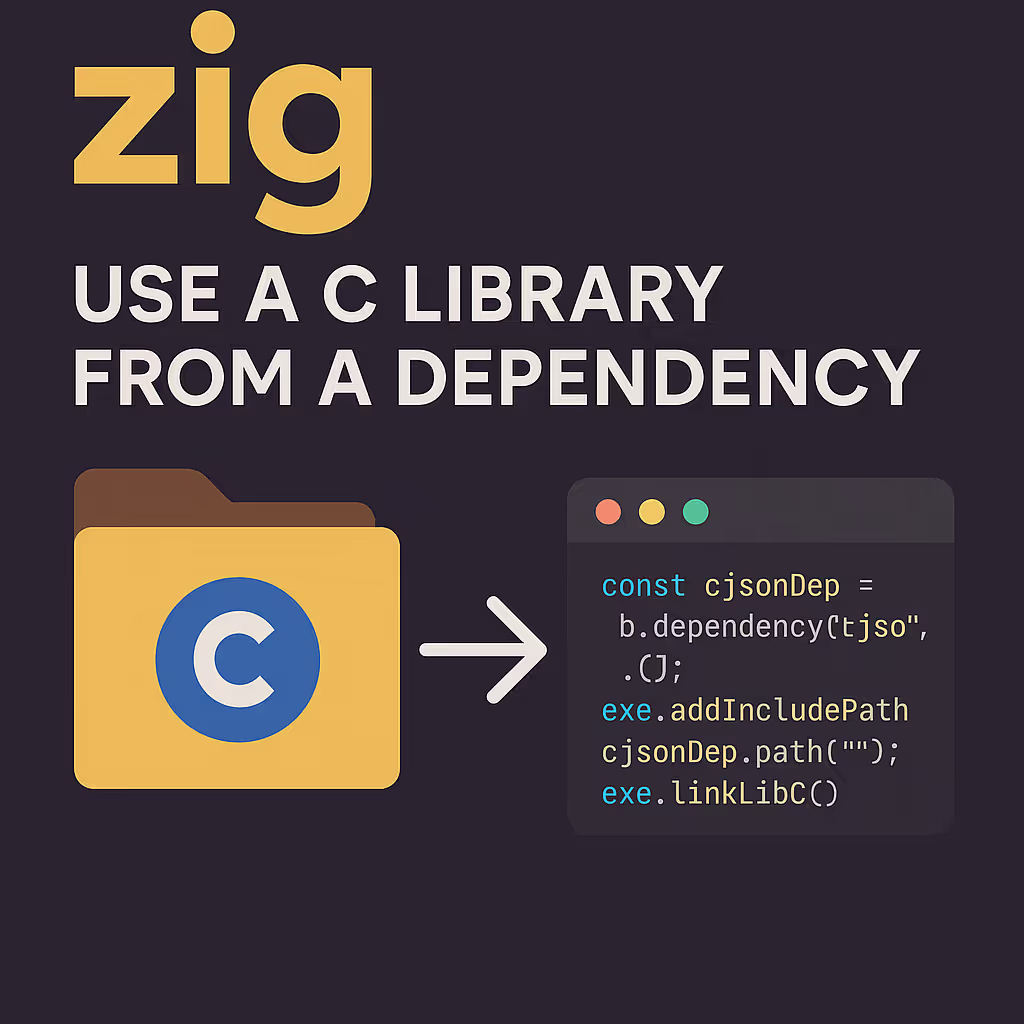zig: use a c library from a dependency
Learn how to seamlessly integrate C libraries, specifically focusing on cJSON, into your Zig projects by leveraging zig fetch and modifying your build.zig file.

The zig community is large, but the number of native zig libraries is still growing. However, you can easily import any C library into your zig project.
Step 1: Fetch and Install the C Library
First install the c library, we will use cJSON as an example.
zig fetch --save=cjson https://github.com/DaveGamble/cJSON/archive/refs/heads/master.zipStep 2: Modify build.zig to Include the C Library
Now we need to adjust build.zig to import the library to our executable:
// ...const cjsonDep = b.dependency("cjson", .{});exe.addIncludePath(cjsonDep.path(""));exe.linkLibC();exe.addCSourceFiles(.{ .root = .{ .dependency = .{ .dependency = cjsonDep, .sub_path = "", }, }, .files = &[_][]const u8{ "cJSON.c", },});// ...Step 3: Use the C Library in Your zig Application
Now, you can access the public API of cJSON in your zig application.
const c = @cImport({ @cInclude("cJSON.h");});
const value = c.cJSON_Parse( "{ \"name\": \"Patrick\" }",);defer std.c.free(value);const name = c.cJSON_GetObjectItemCaseSensitive( value, "name",);defer std.c.free(name);if (c.cJSON_IsString(name) == 1) { const str: [:0]u8 = std.mem.span(name.*.valuestring); std.debug.print( "name = {s}, len = {d}\n", .{ str, str.len, }, );}Output:
> zig build runname = Patrick, len = 7With this approach, you can easily extend your Zig applications using the vast ecosystem of C libraries, like cJSON. This flexibility allows you to bridge the gap between Zig and C seamlessly.
